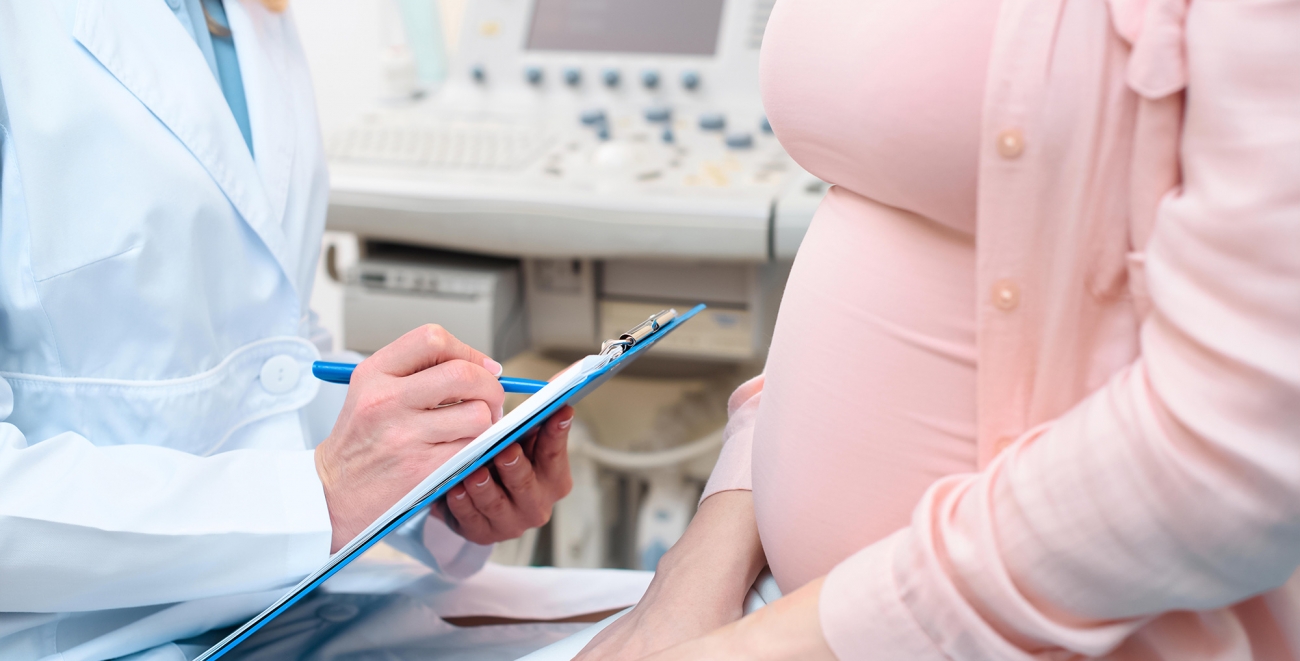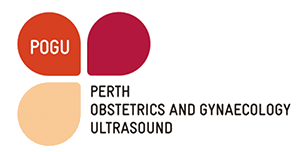
Chorionic villi are small finger like projections that make up part of the early placenta. Cells of the chorionic villi almost always have the same chromosomes as the fetus. The placenta can be accessed safely in the first trimester, a time when amniocentesis is not to be performed.
Chorionic villous sampling (CVS) is a prenatal diagnostic procedure where small amounts of chorionic villi are obtained and used to determine whether the fetal chromosomes are normal or whether there is a chromosome abnormality present. At the time of CVS an ultrasound scan of the fetal anatomy is also performed, though it can only show a limited amount of anatomical details.
What are the common reasons for having a CVS?
- To assess the fetal chromosomes in pregnancies at increased risk at the prenatal screening,
- If the woman has had a previous pregnancy with a chromosomal abnormality
- If there is a known parental chromosome problem
- If an abnormality is found at the time of an ultrasound scan early in pregnancy.
What to consider before making the decision to have CVS?
It is often stressful and difficult to make a decision to have CVS. Hence it is important that you and your partner have fully discussed the issues around CVS amongst yourselves and with your doctor before having the procedure done. Issues you can expect to discuss prior to procedure would be:
- Which test is most suitable for you, Amniocentesis/ Chorionic villous sampling
- What is actually involved in the test
- What are the potential complications
- How long the results would take
- What are your options if the test is abnormal and what dilemmas you may face with
What is involved in performing CVS?
Chorionic villus sampling is performed with the use of continuous ultrasound guidance to facilitate accurate placement of the needle into the placental tissue. It is usually done between 11-13 weeks of gestation.

Before the procedure an ultrasound examination is done to assess the pregnancy and other pelvic structures. Then the skin is cleaned with an antiseptic solution. A local anesthetic is injected into the skin to make the area numb which allows the doctor to perform the procedure with much less discomfort for you.
Then a thin (20 gauge) needle is inserted through the abdominal wall into the early placenta. The tip of the needle is watched on the ultrasound screen at all times to ensure the needle enters the placental tissue at the safest location and it avoids contact with the fetus or amniotic fluid. A syringe is attached to needle once it is correctly positioned and tissue is aspirated over a period of 30-60 seconds. In most cases only a single needle insertion is required.
Women who are Rhesus negative will need to have an injection of anti-D following the procedure and will be administered by the medical staff immediately following the CVS. Hence documentation of the maternal blood group is necessary at the time of the CVS.
What are the risks of having a CVS?
We try to make your procedure as safe as possible. It is an invasive diagnostic procedure and does carry with it a small but definite pregnancy loss rate.
The risks of complications are:
- Miscarriage (less than 2 in 200)
- Vaginal spotting or bleeding (less than 2 in 100)
- Uncertain results of your baby’s karyotype (placental mosaicism) 2 in 100
- Failed culture (1 in 1000)
- Infection in the womb (1 in 1000)
- Premature rupture of membranes (rare)
When will I get the results?
In general, a preliminary chromosome result is available in 24- 36 hours where chorionic villi are tested using the FISH (fluorescent in-situ hybridization) technique. However the FISH results only shows the results for four common chromosomal disorders, including Down’s syndrome.
The full fetal chromosome result will take 10-14 days on average as it involves culturing the chorionic villi in the laboratory.
What are the advantages of CVS?
The main advantage of having CVS is the earlier gestation that it is performed at (typically 12 weeks) and hence the availability of results before the end of the first trimester of pregnancy. Although most CVS test results will be normal, in situations where the results are not normal there is more flexibility and safety with regard to management options for the woman.
CVS is the procedure of choice when DNA is required for testing for genetic conditions, as it enables the provision of large amounts of DNA for the molecular laboratory to facilitate an accurate result.
Are there any disadvantages to a CVS?
Not all abnormalities can be diagnosed with CVS. Only chromosome abnormalities and when specifically tested for certain genetic disorders can be diagnosed. Hence, if the chromosome result is normal, this does not guarantee a normal baby.
CVS is most commonly performed to determine whether or not the fetus has Down’s syndrome or another major chromosomal abnormality present. Occasionally, a rare chromosome abnormality may be found.
There is a pregnancy loss rate of 1-2% following a CVS (slightly higher than Amniocentesis) even in experienced hands. The pregnancy loss rate increases with the number of attempts required to obtain the chorionic tissue. We will not perform more than two attempts although in the majority of cases only a single needle attempt is required. Maternal contamination with decidual tissue is possible but rare with modern cytogenetic laboratory techniques.
Although in general the placental chorionic villi have the same chromosomal appearance as the fetus, in 1-2% of cases there may be a discrepancy between the chromosomes in the chorionic villi and those of the fetus. This is called confined placental mosaicism, as the abnormality is typically present in the placenta and not the fetus. An additional amniocentesis at 15-16 weeks gestation may be required to clarify the situation in this circumstance.
On a few occasions it may not be technically possible to safely perform a CVS at the time of your appointment. In those circumstances we will either reschedule the appointment for 5-7 days time (when the placenta will be larger or the uterine position generally improved) or discuss the role of amniocentesis (15-16 weeks gestation).
Recovery from CVS
CVS is usually not a painful procedure, but most women feel some discomfort. Often the stress and anxiety in the days before the CVS are said to be the worst thing about the test by many patients.
Patients who have had a CVS are advised to take it easy for 24-48 hours. They are advised not to do any strenuous exercise or activity such as lifting or housework or picking up young children.
It is common for women who have had CVS to experience some cramping for few days for which Paracetamol may be taken.
It is not appropriate to have your children attend CVS procedure and we would request you arrange childcare when attending for this procedure. We strongly suggest you have someone with you to attend your CVS procedure.

